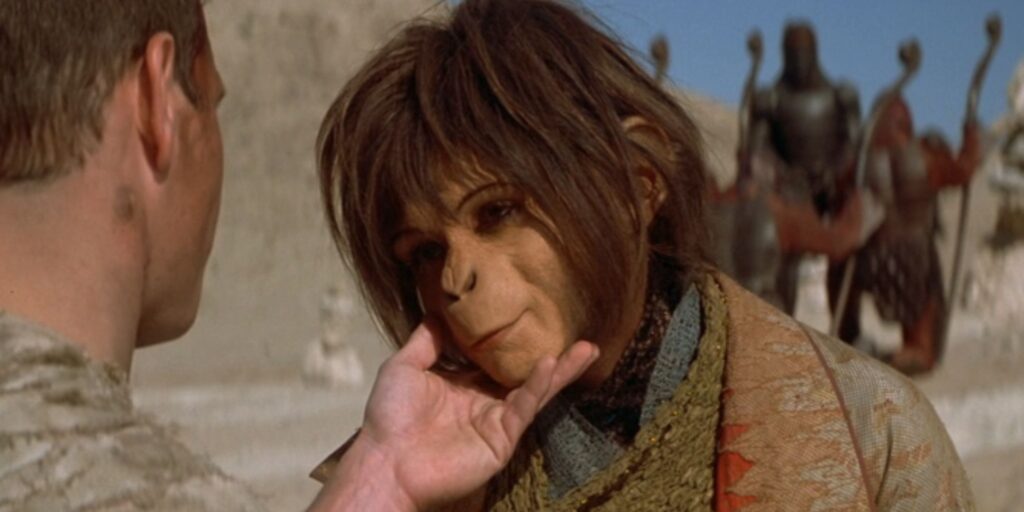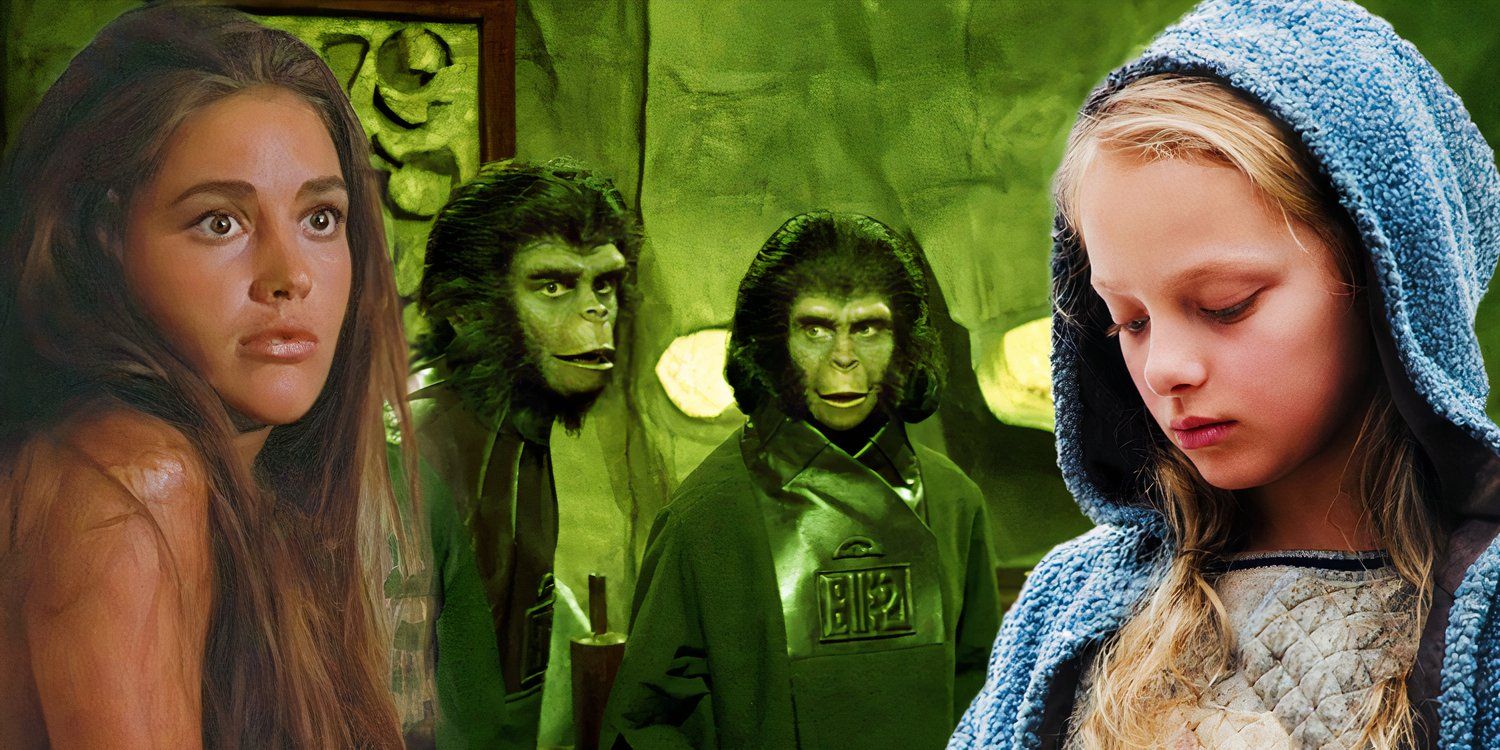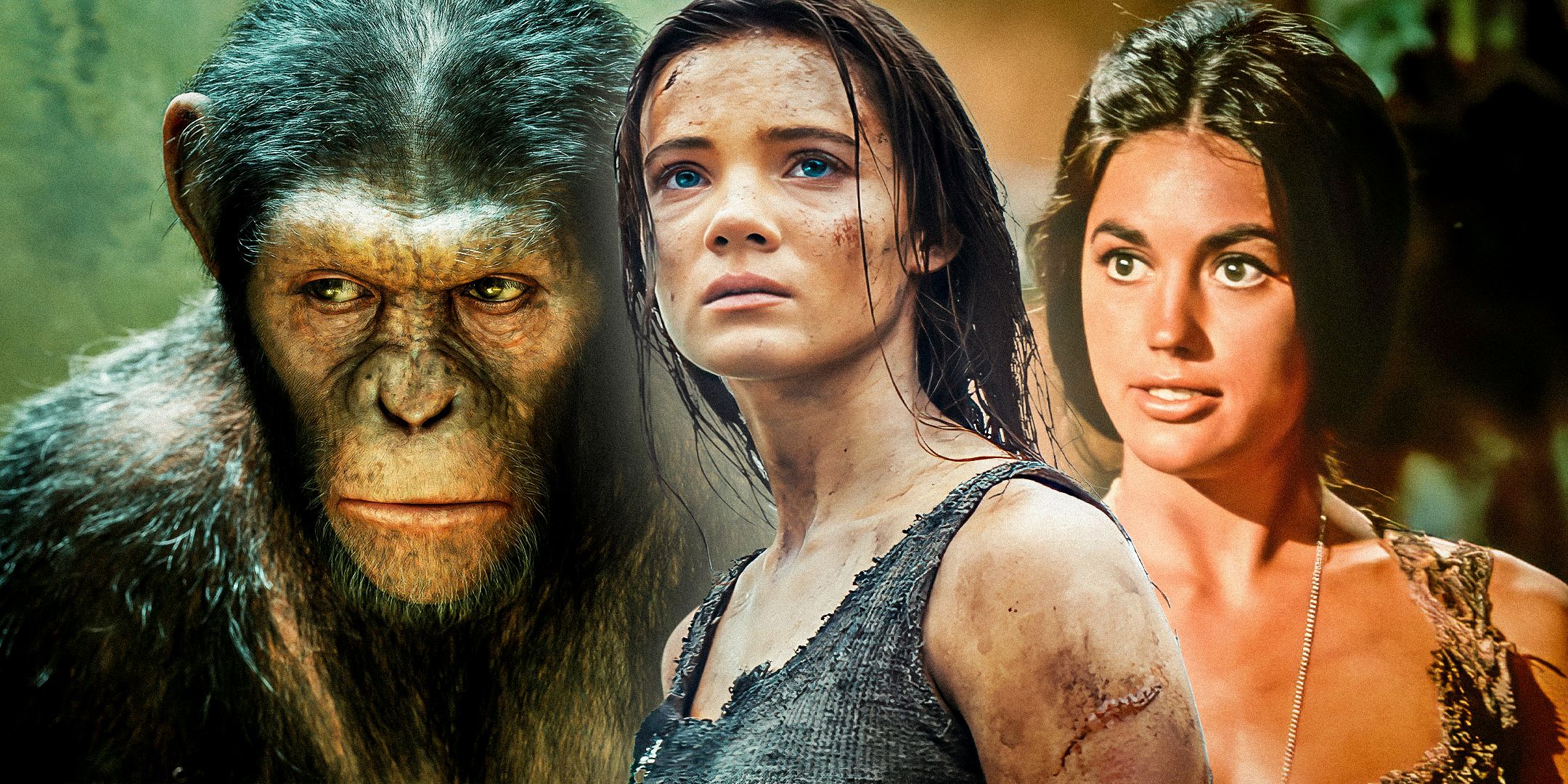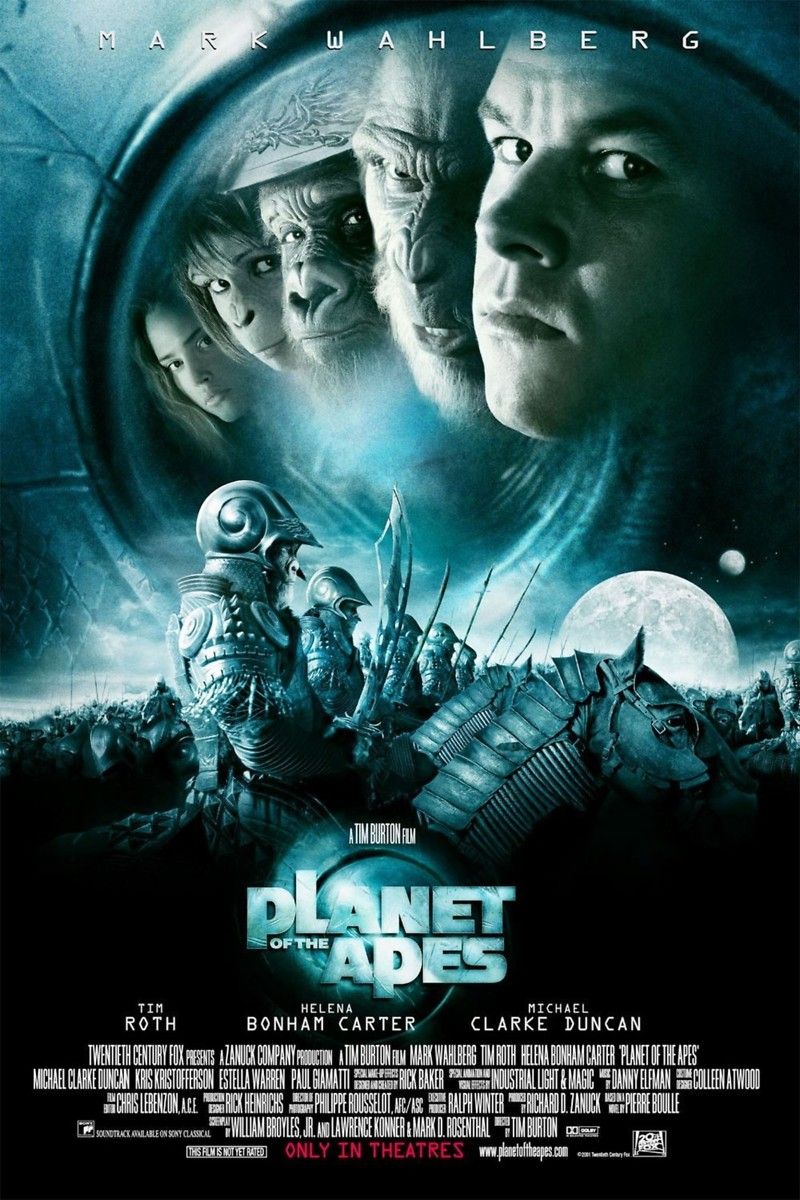Is Tim Burton’s Planet Of The Apes Canon? The 2001 Movie’s Placement In The Timeline Explained

Tim Burton’s 2001 Planet of the Apes movie was made after the original run of movies (1967-1973), but before the franchise’s return to prominence with 2011’s Rise of the Planet of the Apes, making it confusing to work out where Burton’s sole contribution belongs within the canon – if it does at all. However, there is a solid answer to the question of where the 2001 effort fits into the vast collection of Planet of the Apes movies. Plus, it’s easy to work out where Burton’s movie slots into place in the various Planet of the Apes timelines.
Tim Burton’s movies generally have a highly recognizable style, with brooding characters and a playfully spooky aesthetic. His Planet of the Apes movie strays from that formula, which makes it easy to forget he was involved with one of the franchise’s worst movies. Plus, the director has countless success stories that tend to draw more attention, rather than too much focus being placed on the 2001 effort. Regardless, the fact remains that Burton’s brief collaboration with Planet of the Apes resulted in a question mark appearing over its place in the long-running series.
Tim Burton’s Planet Of The Apes Is A Remake Of The 1968 Movie
Burton wasn’t making a sequel
The original Planet of the Apes story came in the form of a 1963 novel by Pierre Boulle, and it was adapted into a movie five years later. Multiple movie sequels took Boulle’s idea far beyond the source material, as the French author never wrote a second book to continue the story. 1973’s Battle for the Planet of the Apes would be the final installment of that particular run, and the movie franchise wouldn’t be revived until 2001 when Tim Burton was tasked with bringing it back. However, his movie wasn’t a sequel to the 1973 effort.

Related
Planet of the Apes: Why Humans Can’t Talk
In the future world of 1968’s Planet of the Apes, humans are unable to talk. Is this the result of devolution, a virus, or something else?
Instead, Burton’s Planet of the Apes movie was a hard reboot, and once more adapted Pierre Boulle’s original book into a modernized version of the 1968 movie. It was, effectively, a remake of the original film. So, not only is there no requirement for audiences to familiarize themselves with all the previous movies, but there’s also no real point in doing so beyond spotting the differences between the 1968 movie and the 2001 remake.
Tim Burton’s Planet Of The Apes Is A Standalone Movie
Fox never ordered a Planet of the Apes sequel to Burton’s 2001 effort
2001’s Planet of the Apes was a clear attempt at beginning a new series of movies that imitated the classic run by taking the story far beyond the pages of the lone novel. Although it performed impressively at the box office (over $360m on a budget of $100m, according to Box Office Mojo), Burton’s movie was generally panned by critics and audiences alike. It currently has a score of just 43% on Rotten Tomatoes, and the audience score is even lower at just 27%. So, any possibility of a sequel was dissolved after that.
Speaking on the movie’s DVD commentary, Burton clarified that the ending was a “reasonable cliffhanger that could be used in case Fox or another filmmaker wanted to do another movie.”
The movie’s ending, although ambiguous, is considered a more faithful nod to the ending of the source material. Speaking on the movie’s DVD commentary, Burton clarified that the ending was a “reasonable cliffhanger that could be used in case Fox or another filmmaker wanted to do another movie.” So, it seems as though Burton never intended to make a sequel, but that a continuation could have materialized from a new creative team if his movie had done well. As it stands, it exists within its own canon and functions pretty well as an isolated tale.
The Planet Of The Apes Remake Was Followed By A Reboot 10 Years Later
Rise of the Planet of the Apes started a (sort of) prequel movie run
After Tim Burton’s movie failed to reignite the Planet of the Apes movie franchise in 2001, the series remained inert for a decade. Then, 2011 brought with it a new approach to the story. Rather than focusing on the part of the timeline with which audiences were already familiar, Rise of the Planet of the Apes marked the beginning of a slow-burning origin story that tracked the saga’s titular race and their journey to become Earth’s dominant species. This time, multiple sequels were deemed worthy of production after the movie’s success.

Related
Every Planet Of The Apes Movie, Ranked Worst To Best (Including Kingdom)
The Planet of the Apes franchise began over 50 years ago. With five original films, a reboot, and four modern movies, ranking them reveals the best.
Despite technically being a Planet of the Apes prequel, Rise is the beginning of a series of films set within a new continuity. Although there are several theories that could connect the two timelines, the post-Burton movies are not canonically connected to the pre-Burton ones. They both spin off from the Pierre Boulle novel and use the same basic pool of lore, but that is where the connections start to become far less solid. So, just as 2001’s Planet of the Apes movie tried to restart the franchise, Rise pulled it off by going much further back to start things again.
Sources: Box Office Mojo, Rotten Tomatoes

- Release Date
-
July 27, 2001
- Runtime
-
120 Mins
- Writers
-
Pierre Boulle, William Broyles Jr., Lawrence Konner





